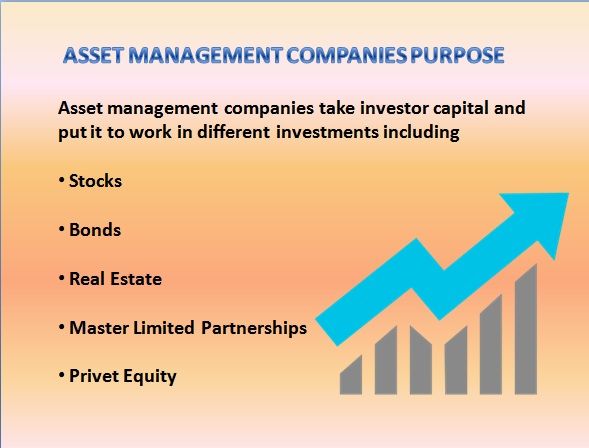Artificial Intelligence is transforming the entire world, including the Asset Management industry, by empowering analysts to research accurate investment insights and extract more information faster. Earlier, analysts used to follow the traditional labour-intensive technique and waste a lot of time, effort and resources manually researching hundreds of sources. This also led to missing crucial pieces of information.
But now, with AI, NLP and ML, analysts can detect and extract relevant information from unstructured datasets and can be accessed by both technical and non-technical end-users. AI has evolved its accessibility, using the no-code movement within the Asset Management Regime.

Relevance of AI and Big Data in Investment Research and Analysis
Asset Management firms use AI to research structured and unstructured data and apply it to investment research and analysis. Using AI, analysts can make effective investment decisions by extracting critical insights, generating summaries and creating actionable steps from data.
AI is beneficial for the front, middle and back-office operations of Data Asset Management industries through big data analytics.
Problems and Resolutions Suggested by AI in Asset Management Industry
- Unstructured data is undefined, text-heavy, not easily obtainable and comes in less recognisable text forms.
- If manually detected by the analyst, this unstructured data variety can take hours/days to normalise and extract relevant information from it. Alternatively, AI and NLP identify fundamentals in the given data and convert it into natural/human language.
- AI adds more meaningful information to your analytics models that can be ingested frequently and at scale. It reveals more accurate results.
- Data analysts can’t track relevant news and information from external outlets, internal company news, social media, company reviews, sudden changes, etc. AI helps them to monitor and track important details.
- AI and automation can help manage the volume, variety and velocity of critical data that can be essentially retrieved from brokerage reports, corporate filings, social media, news and trade journals. AI helps you delve into various data sources, refine analytical strategies and change the report formats.
Getting the Most out of Your AI in the Asset Management Industry
- To ensure that AI works effectively and suggests accurate predictions, it needs to work on massive quantities of data.
- Once a large amount of data is prescribed, accurate algorithms will be developed when the relevant financial teams provide clean, relevant and accurate data.
- High-quality data can influence risk management, accuracy, customer satisfaction and other business outcomes.
- The AMCs must identify the areas that need improvement through AI. They must set clear goals and ensure that a continuous process is followed for its improvement.
- The AMC industry must start with small sets of complex data to build and monitor AI systems to avoid the dangers of misuse and data leakage. The subsequent ones can be added later after scrutinising the results.
How AMCs Can Adopt an Effective AI Process:
- The financial analysts must ensure the quality and quantity of data.
- They must have transparent conversations on AI to break any industry resistance toward it.
- They should formulate a clear strategy to implement AI and its guiding principles.
- AI can be used by analysts, data scientists and engineers to help them make strategic decisions, build stronger portfolios and form relevant and valuable insights.
Integration of Artificial Intelligence (AI) and Big Data in the Asset Management Industry
AI, in the Asset Management industry, is used to centralise areas like risk management, AI portfolio management, trading and enables financial analysts to scrutinise broader data sets more deeply.
- AI, when used in portfolio management, requires close human supervision. AI can help specialists analyse and monitor new data generated by smartphones, satellites, the internet and other innovations.
- The financial considerations of applying manual labour are more than applying AI in AMC in terms of money, expertise, knowledge, time and effort.
- AI and big data asset management have now taken over everything from AI portfolio managementto risk management to back-office administration. Some hedge funds, AI managed funds, and ETFs have built AI statistical models for trading. AI robots have applied modern techniques to analyse big data in asset management in a better way.
- AI in investment management and statistical models run trading platforms, build statistical models for stock analysis, develop novel investment strategies, incorporate AI managed funds and analyse social media and crowd-sourced forecasts.
- AI in AMC further improves the drawbacks of classic portfolio construction techniques.
A No-Code Approach to Asset Management Data Analytics
AI, NLP and machine learning for asset analysts are growing in AMC firms and are providing innovative solutions that can enable analysts with or without technical expertise to build Artificial Intelligence models for asset management data analytics. No-code AI tools are more accessible to financial end-users who can then identify, analyse and track events and comprehend early warnings of supply chain issues, credit migrations, ESG concerns and more.
No-code AI tools do not require expert subject-matter technical intervention needed to use AI and hence save time and money and improve overall efficiencies.
For example, Tata Quant Fund is India’s first fund that has consistently and efficiently used AI and has claimed a superior position in the mutual funds market, cutting out human emotions and bias.
Utpal Sharma, the Head of Business Analytics at Tata Asset Management, spoke about how the AI algorithm has helped the AMC deal with unpredictable events — like wire. It launched its first AI-driven quant fund based on the BSE 200 index, wherein instead of fund managers, rule-based AI algorithms predict upcoming market trends.
Conclusion
AI Technology – A Powerful Tool in the Future of the Asset Management Industry
The back office, AI portfolio management, trading and risk management are some of the core areas where the benefits of AI and automation are most certain, arising from objectivity, efficiency and the ability to self-improve. Various forms of artificial intelligence, especially machine learning for asset managers, enable powerful algorithms to analyse large data sets, make predictions against defined goals, identify outperforming and outstanding equities by finding innovative patterns in existing data sets, make new forms of data that can be easily analysed, and mitigate the negative effects of human emotions and biases on trading and investment decisions.


Leave a Reply